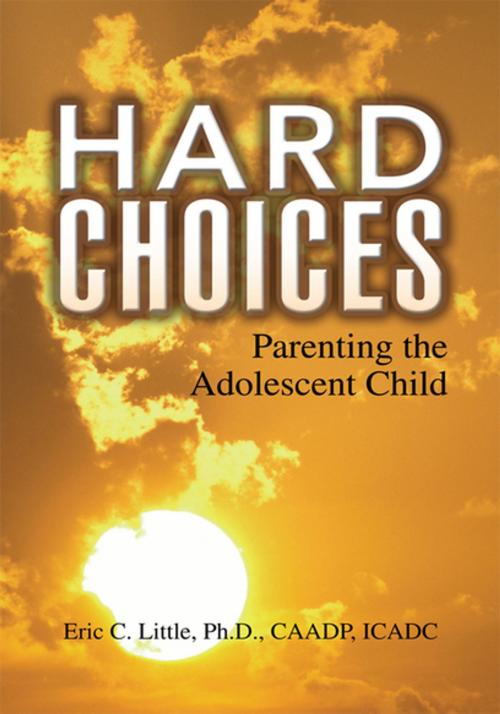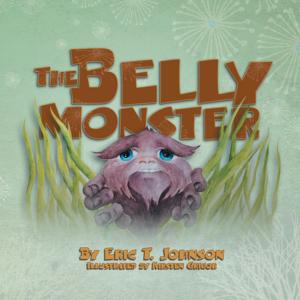Hard Choices
Parenting the Adolescent Child
Nonfiction, Health & Well Being, Psychology, Child & Adolescent, Adolescent Psychology, Self Help| Author: | Eric C. Little Ph.D. CAADP ICADC | ISBN: | 9781469101477 |
| Publisher: | Xlibris US | Publication: | September 11, 2008 |
| Imprint: | Xlibris US | Language: | English |
| Author: | Eric C. Little Ph.D. CAADP ICADC |
| ISBN: | 9781469101477 |
| Publisher: | Xlibris US |
| Publication: | September 11, 2008 |
| Imprint: | Xlibris US |
| Language: | English |
AUTHORS MESSAGE TO THE READERS:
If you write a book Ill be sure to read it! These were the words that prompted the writing of this book. They were spoken to me by my youngest daughters endodontist; apparently, she had impressed him with her behavior during the visit, being ever so polite and charming. What the good doctor didnt see was the emotional roller coaster we rode ever so frequently, the constant struggle to protect her from ungodly influences, and the hard-won battles that had been fought to keep her from going astray.
It was at that point that I decided to take on his challenge of writing a book. It occurred to me that I wasnt the only parent trying to make sense of the adolescent mind, and I wasnt the only parent who had experienced calling the police late at night because of a child who hadnt come home, hoping and praying in my heart that she would be found safely.
It is for those of you that have had similar experiences that I wrote this book. Despite my professional training and experiences, I did not write this book as an expert. I wrote it, as the apostle John said, as a companion in tribulation. I wrote it for the purpose of sharing some of the lessons Ive learned about this thing called parenting.
BOOK DESCRIPTION:
I have used the phrase Hard Choices to describe a difficult but necessary approach to parenting the adolescent child. As parents we often find it unpleasant to dispense discipline in any form, and we also find it difficult to make those choices that, in the short run at least, may jeopardize an already strained relationship. Nevertheless, it is the ability to make hard choices that may in fact bring about a more rewarding relationship with our sons and daughters, and in some cases, may even save their lives.
This book provides insight into the adolescent brain, uncovering neurological research that helps explain teenage behavior. It also offers helpful "tips" for parents of teenagers; strategies and techniques that I have found beneficial both as a parent and as a practictioner. Finally, the book explores psychiatric disorders that are common to adolescence, in an effort to educate parents about these disorders in the event that their children should exhibit symptoms that may warrant professional intervention.
AUTHORS MESSAGE TO THE READERS:
If you write a book Ill be sure to read it! These were the words that prompted the writing of this book. They were spoken to me by my youngest daughters endodontist; apparently, she had impressed him with her behavior during the visit, being ever so polite and charming. What the good doctor didnt see was the emotional roller coaster we rode ever so frequently, the constant struggle to protect her from ungodly influences, and the hard-won battles that had been fought to keep her from going astray.
It was at that point that I decided to take on his challenge of writing a book. It occurred to me that I wasnt the only parent trying to make sense of the adolescent mind, and I wasnt the only parent who had experienced calling the police late at night because of a child who hadnt come home, hoping and praying in my heart that she would be found safely.
It is for those of you that have had similar experiences that I wrote this book. Despite my professional training and experiences, I did not write this book as an expert. I wrote it, as the apostle John said, as a companion in tribulation. I wrote it for the purpose of sharing some of the lessons Ive learned about this thing called parenting.
BOOK DESCRIPTION:
I have used the phrase Hard Choices to describe a difficult but necessary approach to parenting the adolescent child. As parents we often find it unpleasant to dispense discipline in any form, and we also find it difficult to make those choices that, in the short run at least, may jeopardize an already strained relationship. Nevertheless, it is the ability to make hard choices that may in fact bring about a more rewarding relationship with our sons and daughters, and in some cases, may even save their lives.
This book provides insight into the adolescent brain, uncovering neurological research that helps explain teenage behavior. It also offers helpful "tips" for parents of teenagers; strategies and techniques that I have found beneficial both as a parent and as a practictioner. Finally, the book explores psychiatric disorders that are common to adolescence, in an effort to educate parents about these disorders in the event that their children should exhibit symptoms that may warrant professional intervention.















